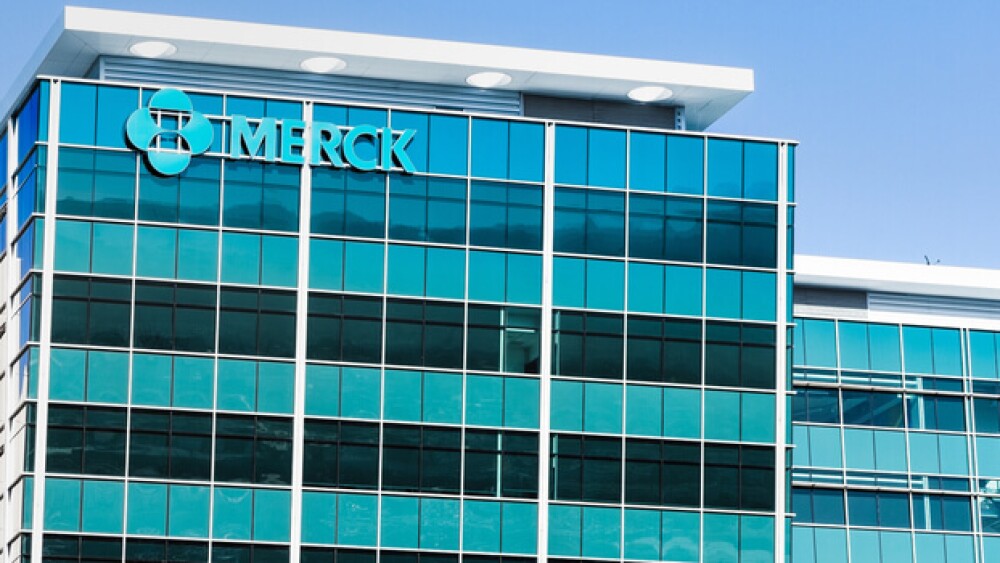Merck is joining the ranks of pharmaceutical companies that have a COVID-19 vaccine candidate in clinical development. Merck will move its candidate into clinical trials in the third quarter of this year, the company announced this morning.
Sundry Photography / Shutterstock
Merck is joining the ranks of pharmaceutical companies that have a COVID-19 vaccine candidate in clinical development. Merck will move its candidate into clinical trials in the third quarter of this year, the company announced this morning.
The move to Phase I comes weeks after the company closed its acquisition of Austria-based Themis, which has a pipeline of vaccine candidates and immune-modulatory therapies. Merck jumped into the vaccine development program with its May acquisition of the company, which is developing V591, a SARS-CoV-2 vaccine candidate that uses a measles virus vector platform based on a vector originally developed by scientists at the Institut Pasteur. The vaccine candidate has been in preclinical development. Merck announced its plan to move the product into human trials in its quarterly financial report, which was released this morning.
Merck did not disclose a timeline for its vaccine development program in the announcement. The company has been cautious in its approach to vaccine development. In a report earlier this month, Merck Chief Executive Officer Ken Frazier noted that vaccines typically take a decade or more to develop and assess for efficacy and safety. He expressed some caution over the rapid development of COVID-19 vaccines. Frazier warned that the first vaccines against COVID-19, should they meet the 50% efficacy threshold set by the U.S. Food and Drug Administration, may not have as broad of an impact as hoped. Frazier said the vaccines may not have the qualities that are necessary to be deployed rapidly and on a large enough scale as hoped.
“We are conscious of our abiding responsibility to help advance vaccine and antiviral efforts as part of the global response to SARS-CoV-2 and to ensure broad, equitable and affordable global access to any medicines and vaccines we bring forward,” Frazier said in a statement this morning. “This pandemic underscores the essential role of Merck and the biopharmaceutical industry in addressing the world’s greatest health challenges and underscores the importance of a health care ecosystem that incentivizes risk-taking and innovation. Ultimately, scientific and medical knowledge will help overcome this ongoing global pandemic – and that is why we must continue to trust and invest in breakthrough science.”
In addition to its vaccine development with the Themis asset, Merck is also partnering with the nonprofit organization IAVI to develop a vaccine for COVID. That vaccine candidate uses the recombinant vesicular stomatitis virus technology Merck used to develop its Ebola Zaire virus vaccine, ERVEBO.
In May, Merck and Florida-based Ridgeback Therapeutics teamed up to develop MK-4482 (formerly known as EIDD-2801). MK-4482 is an orally available antiviral candidate for the treatment of COVID-19. In preclinical studies, MK-4482 demonstrated antiviral properties against SARS-CoV-2, the virus that causes COVID-19, as well as the coronaviruses responsible for MERS and SARS. The candidate is currently being evaluated in Phase II clinical trials.
Merck is also collaborating with the Institute for Systems Biology to investigate and define the molecular mechanisms of SARS-CoV-2 infection and COVID-19 and to identify targets for medicines and vaccines.





